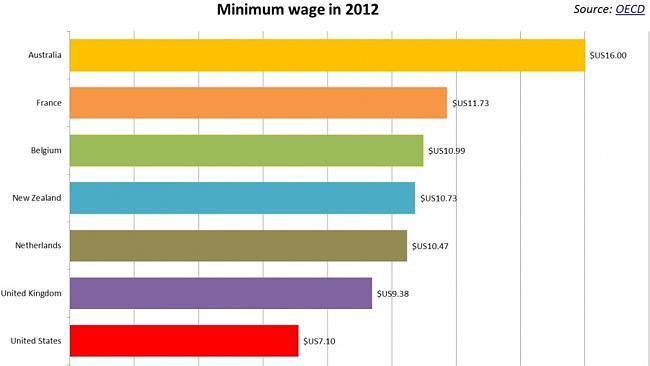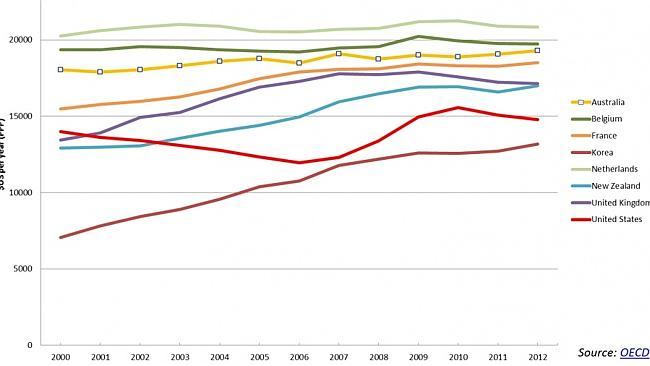How generous are Australian work conditions?
WAGES, penalty rates and Australian working conditions are being furiously debated at the moment. Which begs the question, what's all the fuss?

Economy
Don't miss out on the headlines from Economy. Followed categories will be added to My News.
THE government's submission to Fair Work calling for a review of Australia's national awards scheme has brought Australia's industrial relations debate to a head. As a result, we're going to see unions, government and business lobby groups start comparing Australia's IR laws to other OECD countries.
So, we've done just that, focusing on three core areas of the IR debate: minimum wage, leave and penalty rates.
Australia's minimum wage has climbed steadily over the past decade, rising from $US11 in 2004 to around $US16.88 in 2013. And as the chart looking at minimum wages in 2012 shows, it's often pointed out that when converted to US dollars, Australia has the highest minimum wage of all OECD nations.

Though, when you look at the same set of minimum wages through the filter of purchasing power parity (PPP) - an economic tool that neutralises the impact of international currencies - Australia appears to be in the middle of the pack.

On leave entitlements, Australia again is in line with the OECD average. The graph below from a Harvard study on leave is based on minimum leave entitlements, which explains why the US is not represented. In the US, the amount of leave is mandated by the employer, not by the law.

Penalty rates are set to be the most contentious issue in this latest round of looming IR reforms. There are calls from retailers and the hospitality sector to axe (or at least reduce) current penalty rate entitlements.
In general, most OECD nation workers in the retail sector receive loadings on weekends and public holidays. Australia again sits somewhere in the middle, offering loadings for Saturday, Sunday and public holidays.
Germany, in comparison, enjoys rather lavish minimum penalty rate requirements, with employees who work on a public holiday receiving two days off and double pay for one day's work.
Looking at the data, it appears that minimum wage conditions are fairly similar on a PPP basis, which is why perhaps the IR debate is centring on penalty rates.
This is only really a taste of the information that will be brought out as part of this renewed examination of the IR laws. It will be interesting to see what other comparisons the government's investigation will reveal.
This article originally appeared in Business Spectator.
###


